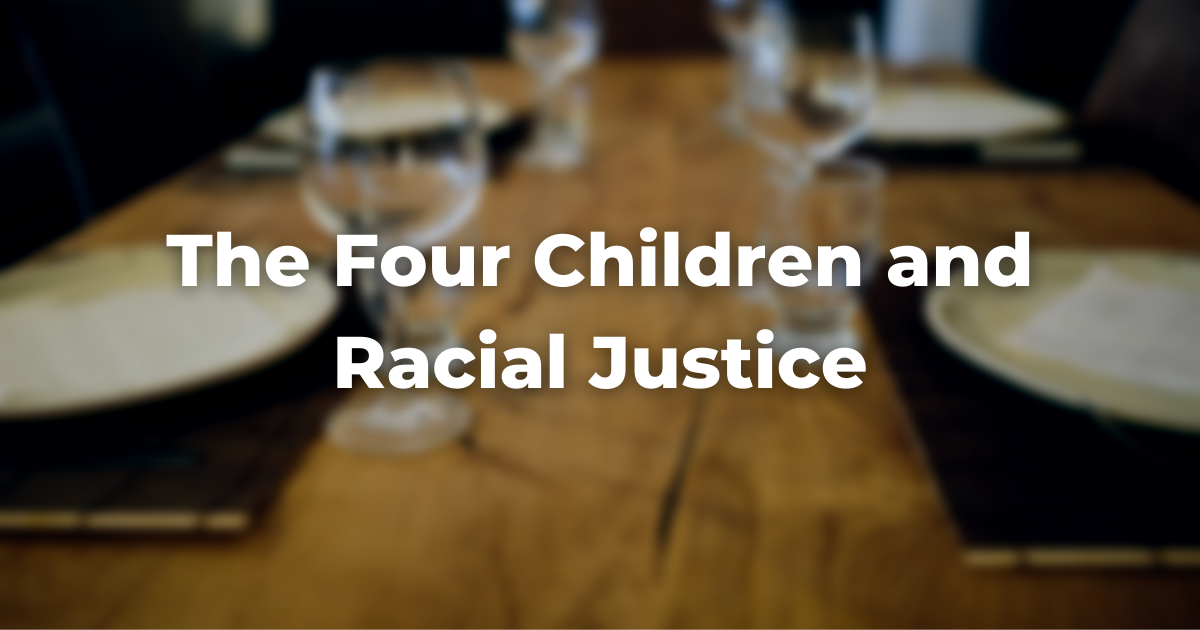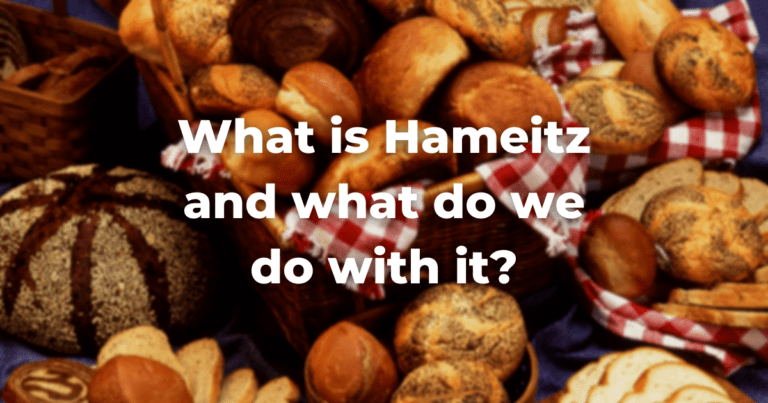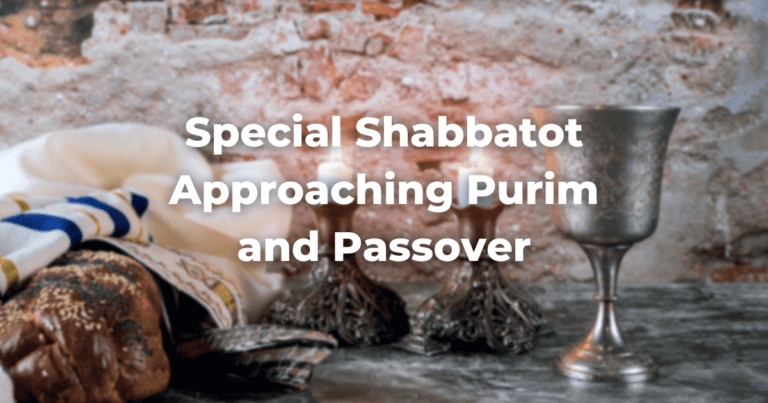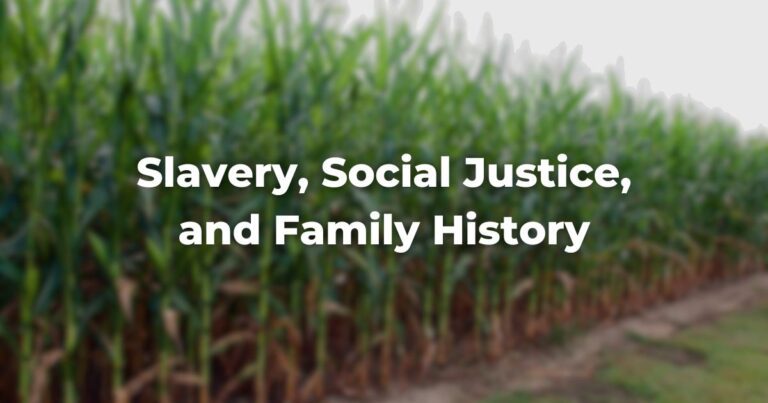How might we reflect on racism in the United States with the holiday of Passover?
The Maggid section of the Haggadah imagines four distinct children, each with their own response to the Passover story. Many of us have long realized that these descriptions apply to people of all ages and that several of these attitudes coexist within us.
As we approach the beloved Haggadah once again this year at a time of profound racial reckoning in our country. How might the four different parts within each of us relate to the challenges of racial justice?
Please note that these questions are crafted primarily in relationship to Jews who are white (or who are treated as white in American society). This represents my own life experience and that of the majority of Jews in the U.S. If your seder table participants are of different religious and racial identities, you will have rich opportunities to learn from varying viewpoints and experiences.
What does the wise person ask?
The wise part of us moves us to commit to a lifelong learning journey about racism in America. What are the best articles, books, films, and workshops that can help me learn what I need to know? What are the things that I have been taught that I now need to interrogate and unlearn?
How can I invoke kindness and curiosity when encountering perspectives that are different from my own? How can I develop trusting relationships with people of color in my area? Where can I find safe and courageous spaces in which to question and wrestle with new ideas?
[For white Jews: How can I learn to live with the paradox of being both Jewish and white, in that I am deeply vulnerable to antisemitism and I also benefit from many unearned advantages as a white person in American society?]
What does the defensive person say?
The defensive part of us instinctively feels that anti-racist viewpoints are intended to blame and shame us. No matter how trustworthy the source, this part of us works to close down our mind and heart in the face of challenging information and perspectives.
In this defensive posture, our natural curiosity and compassion are blocked, along with our openness to learning.
We lash back at perceived attacks with antagonism, hardening our resistance to painful material. That is perhaps the “wicked” element, when we prioritize our own comfort, push away that which unsettles us, and close our minds to learning and growth. How might we, instead, meet our defensiveness with curiosity, summoning an extra measure of compassion and courage to support our learning?
What does the “simple” person ask?
The simple part of us may ask, Why can’t we just all get along? Hasn’t there been a lot of progress towards civil rights in our country? Doesn’t all this talk about race create more division in our country? I’m not a racist, nor are most of the people I know. Can’t we just relate to one another as human beings, created in the divine image, without the dynamics of race getting in the way?
This simple impulse within us wants to wish away the complexities and the pain.
But in our generation, we have access to an overwhelming amount of evidence that demonstrates the enormous racial disparities that exist in every sector of American society, despite the desires of good-hearted people and the work of the first Civil Rights movement. We cannot wish this away. Are you willing to enter into a process of learning about the impact of racism on real people in our country?
And the one who doesn’t know where to begin?
When feeling overwhelmed, we are aware that there are countless new resources and new points of view about race and racism. There is so much to learn, so much history to explore and evidence to examine.
We may feel exhausted by the contentious debate about these issues and the many different people and organizations calling for our attention. We may feel lost as to how to begin a process of learning, much less find a pathway to contribute to this complex moment of change in American society.
In such moments, we may feel paralyzed by all the complexities and arguments, but paralysis is a luxury of the privileged. Can you instead commit to read one new book, view one film, or learn about one organization as part of your learning journey?
For discussion at the Seder table:
Which of these “children” live in you as you contemplate questions about race and racism in America?
You might want to have each person at the table name two different descriptions that they recognize in themselves. Notice the ways in which contrasting attitudes may live within you and within others. Can you listen with compassion and curiosity to the complex internal conversation within you and within others at the table? Can you support one another in discerning next steps in your own journeys?
*While I was the primary author of this piece, I appreciate the valuable input I received from many members of the Racial Justice Subcommittee of the Social Justice Commission.
Author
-
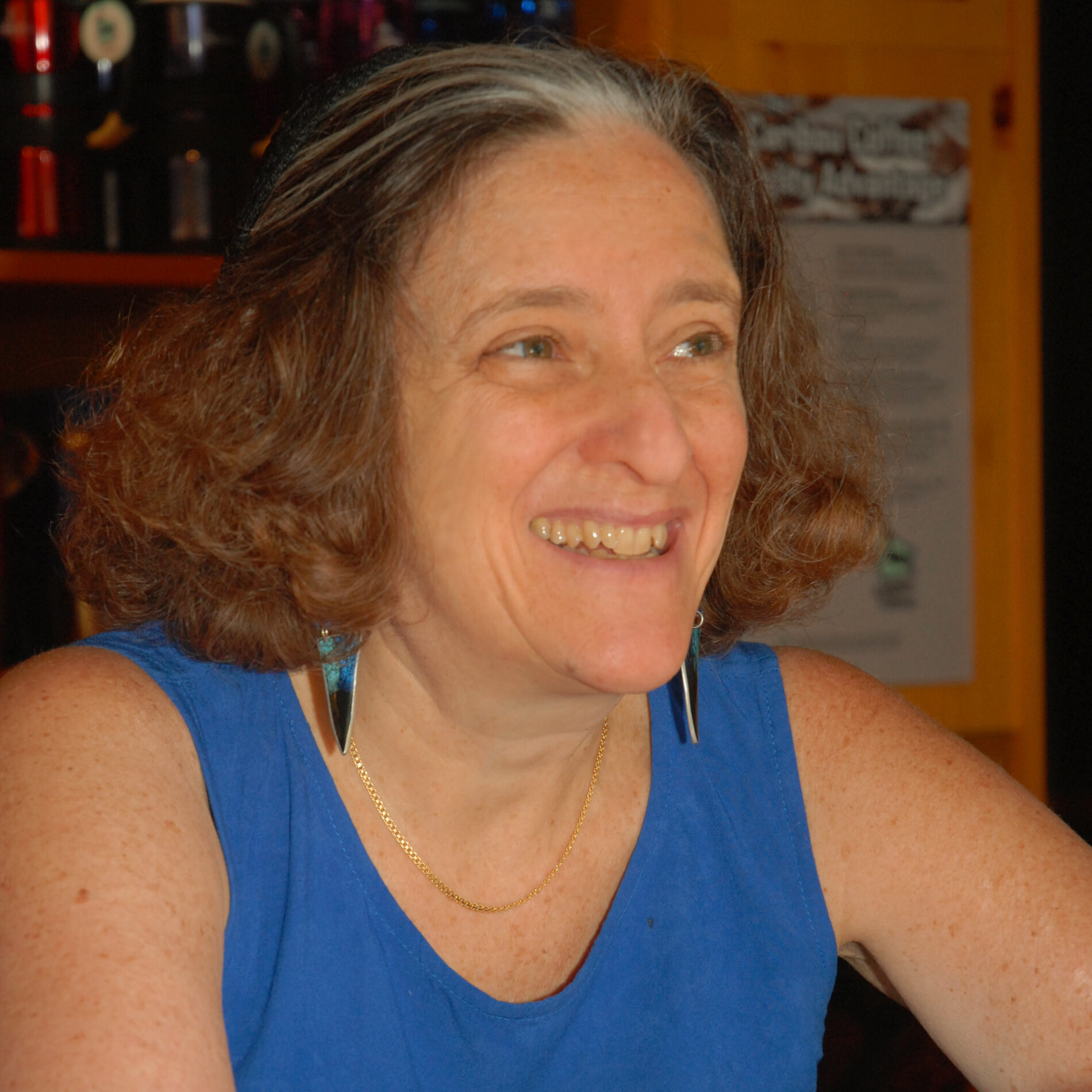
Rabbi Amy Eilberg is the first woman ordained as a Conservative rabbi by the Jewish Theological Seminary of America. She serves as a spiritual director, peace and justice educator, and teacher of Mussar (a classical Jewish system of spiritual development). Her community work includes serving as chair of the Racial Justice Subcommittee of the Social Justice Commission. Her book, From Enemy to Friend: Jewish Wisdom and the Pursuit of Peace, was published by Orbis Books in March 2014. She is married to Louis Newman, is a devoted mother of three adult children and grandmother of three extraordinary
View all posts
grandchildren.

